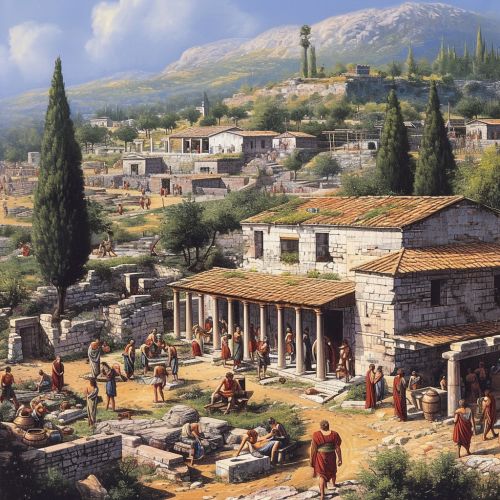Greek colonies
Origins and Motivations
The establishment of Greek colonies, or apoikiai, began in the 8th century BC and continued for several centuries. The primary motivations for the Greeks to establish these colonies were often economic and social. Overpopulation, land hunger, political unrest, and the desire for trade expansion were among the key factors that drove the Greeks to seek new lands. The establishment of colonies also served as a means to spread Greek culture and influence throughout the Mediterranean and Black Sea regions.


Process of Colonization
The process of establishing a Greek colony was complex and often involved an oikistes, or founder, who was chosen by the city-state, or polis, from which the colonists originated. The oikistes would lead the colonists, who were usually volunteers, to the new land. The colonists would then establish a new polis, which was often a replica of their mother city, complete with its own political institutions, religious practices, and social structures. The new colony maintained ties with the mother city, but it was independent and self-governing.
Major Greek Colonies
The Greeks established colonies in many regions, including Italy, Sicily, France, Spain, North Africa, and the Black Sea region. Some of the most significant Greek colonies included Syracuse in Sicily, Marseille in France, Emporion in Spain, Cyrene in Libya, and Sinope on the Black Sea coast. These colonies became important centers of trade, culture, and military power, and they played a crucial role in the spread of Greek civilization.
Impact on Greek Civilization
The establishment of Greek colonies had profound impacts on Greek civilization. It led to the spread of Greek culture, language, and political institutions throughout the Mediterranean and Black Sea regions. The colonies also played a crucial role in the economic growth of Greece, as they provided new markets for trade and resources. Moreover, the colonies served as a conduit for cultural exchange, facilitating the transmission of ideas and innovations between Greece and other civilizations.
Decline and Legacy
The decline of the Greek colonies began in the 4th century BC, with the rise of the Roman Empire. Many Greek colonies were conquered by the Romans and incorporated into their empire. Despite their decline, the Greek colonies left a lasting legacy. They played a crucial role in the spread of Greek culture and civilization, and their influence can still be seen in the regions where they were established.
